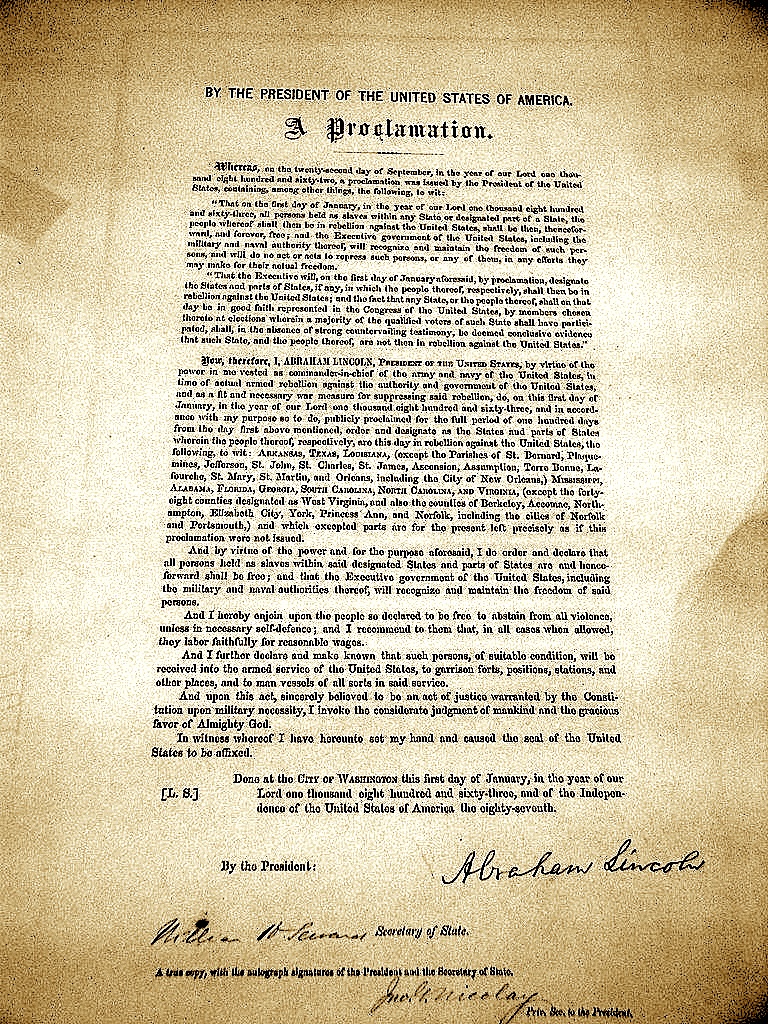
PHILADELPHIA (Reuters) – A museum on Thursday unveiled a rare copy of the Emancipation Proclamation, a document signed in 1863 by President Abraham Lincoln declaring the end of slavery in the United States.
The document is one of about 24 known copies to survive out of 48 that were originally printed. It was acquired on behalf of The National Constitution Center museum from an unnamed private collector.
“This is one of the rarest, most valuable, most significant documents in history,” president of the non-profit museum Joseph Torsella told a news conference. “With the possible exception of the Declaration of Independence, no document has had a more profound impact on the American vision of liberty.
Torsella declined to say how much was paid for the document, saying only that it was a “very significant sum.” It was acquired by board member Steven Galbraith and will be on loan to the museum, where it will be on display until 2017.
Lincoln signed the proclamation on January 1, 1863, two years into the American Civil War, and in so doing authorized the freeing of slaves in rebel states.
The document contains the entire text of the proclamation and was originally intended for sale at a Philadelphia fair in 1864 to raise money for sick and wounded soldiers. Each copy, with Lincoln’s original signature, sold for $10 at the time.
